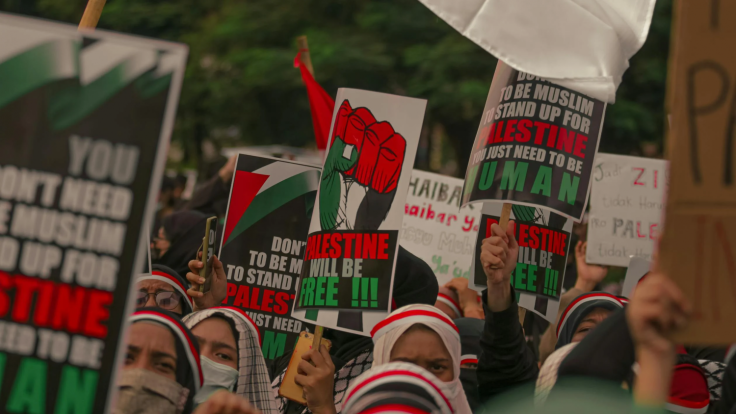Students Erect Encampments Nationwide, Demanding University Divestment from Companies Linked to Israel
ByPro-Palestinian student activists have sparked a wave of demonstrations on college campuses across the United States, setting up encampments to demand that universities divest from companies with ties to Israel.
These actions come after Columbia University shut down a pro-Palestinian encampment last week, where demonstrators advocated for divestment from such companies. The movement has since spread to more than a dozen institutions, with students erecting tents and sleeping bags on campus quads and thoroughfares, hosting teach-ins, reciting prayers, and waving Palestinian flags.

Escalating Demands for Divestment
At the heart of these demonstrations is a call for universities to divest from companies that activists believe are complicit in human rights violations against Palestinians. Students are urging their institutions to cut ties with companies that profit from or support the Israeli occupation of Palestinian territories, citing concerns about human rights abuses and violations of international law.
The protests have been fueled by a sense of urgency and solidarity with the people of Gaza, particularly in the wake of recent violence in the region. Many student activists see divestment as a tangible way to support the Palestinian cause and pressure Israel to change its policies.
Diverse Responses from Universities
University administrations' responses have varied, with some taking a hardline approach and others opting for more leniency. At Columbia University and Yale University, police arrested protesters and dismantled encampments, prompting criticism from students and faculty. In contrast, other universities, such as the University of California, Berkeley, have allowed encampments to remain, citing a commitment to free expression and the peaceful resolution of conflicts.
Administrators face balancing students' right to protest with maintaining campus safety and order. Some universities have expressed concerns about encampments disrupting normal campus activities, especially with finals week and graduation approaching. However, student activists argue that the inconvenience caused by the encampments is minor compared to the hardships faced by Palestinians living under occupation.
Historical Context and Influence of Past Movements
The current wave of student encampments is reminiscent of past protest movements on college campuses, particularly the anti-Vietnam War protests of the late 1960s. During that time, students nationwide staged sit-ins and occupations of university buildings to protest the war, leading to hundreds of arrests.
More recently, the Occupy Wall Street movement in 2011 saw young activists camping out in lower Manhattan for two months to protest income inequality and corporate greed. The success of these movements in drawing attention to social and political issues has inspired today's student activists to adopt similar tactics.
Challenges and Future Prospects
Challenges remain despite the growing momentum of the pro-Palestinian divestment movement on college campuses. Universities are often reluctant to take action that could be perceived as politically controversial, or that could alienate donors and supporters. Additionally, some students face backlash and disciplinary action from their institutions for participating in protests.
Looking ahead, the divestment movement's success will depend on student activists' ability to sustain their momentum and mobilize broader support. External factors, such as developments in the Israeli-Palestinian conflict and shifts in public opinion, may also influence the movement's impact.
The spread of pro-Palestinian encampments on college campuses reflects a growing awareness and activism among students around issues of social justice and human rights. These demonstrations are a form of protest and a means of education and solidarity-building within university communities. As the movement continues to evolve, it has the potential to shape the discourse on Israel-Palestine relations and influence university policies regarding investment and corporate partnerships.
© 2025 University Herald, All rights reserved. Do not reproduce without permission.








